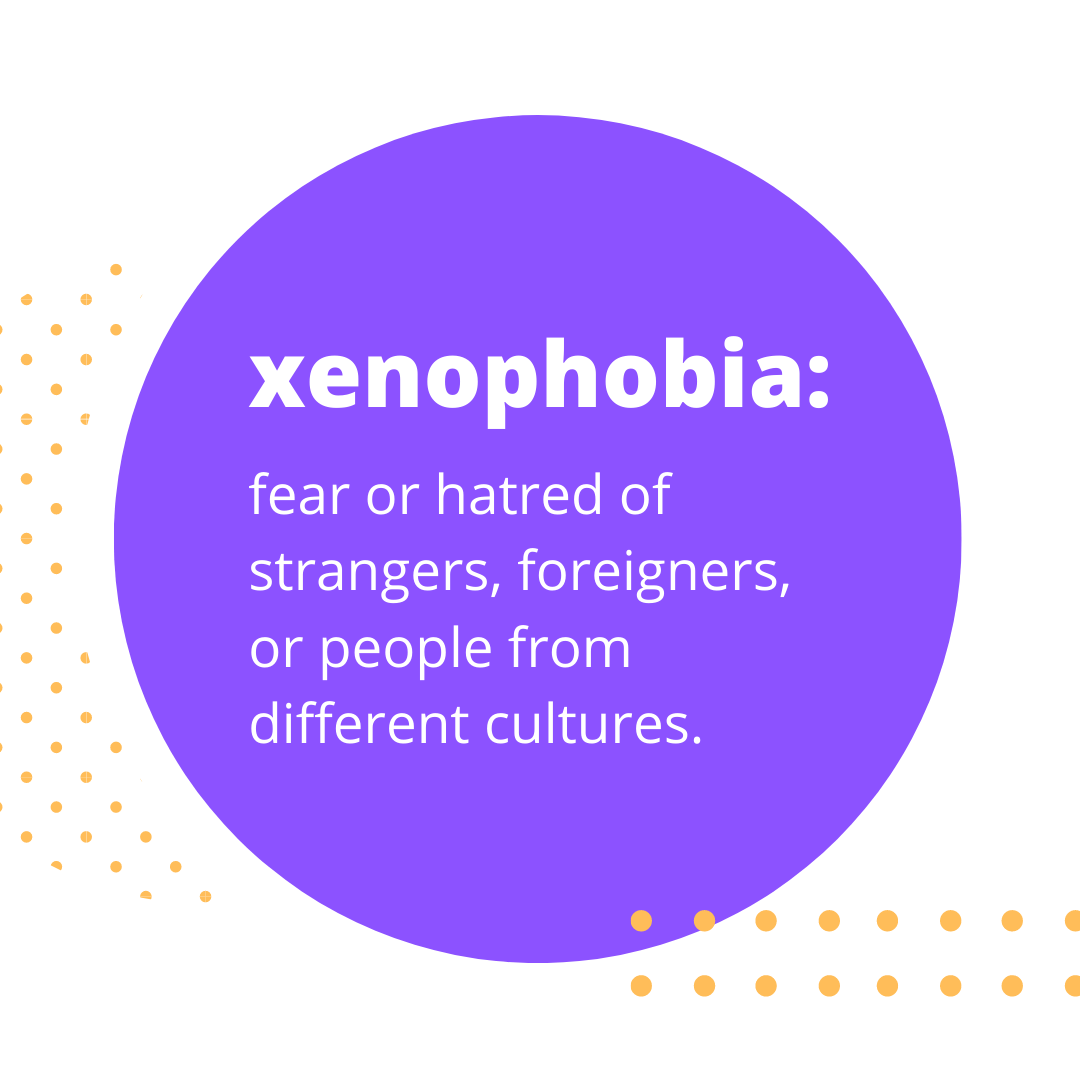Coronavirus is Not an Excuse for Racism
/By Nikki Bambauer
January 2020: A hotel in Italy declined to host Chinese guests; a restaurant in Czech Republic refused to serve Chinese customers; a vendor giving away free samples at a Washington state Costco location demanded that an Asian family “get away” from their table. As panic about COVID-19, also known as Novel Coronavirus, has spread throughout communities around the world, xenophobia against people of Asian descent has increased noticeably.
This recent scapegoating is upsetting and unjustified, but is not surprising. Throughout history, outbreaks of disease have prompted extreme xenophobia against specific ethnic groups in the name of public health. A few examples include:
Strasbourg, France, 1349: after reaching Europe in 1348, an outbreak of the bubonic plague kills 30% to 60% of Europe’s population. Many blame Europe’s Jewish population for the disease. In Strasbourg, France, 2,000 Jews are burned alive.[1] It is now widely accepted that the disease was spread by fleas.
Pennsylvania, 1832: a cholera outbreak near Philadelphia causes Irish railroad workers to flee the area. Archaeological evidence from the site of a mass grave indicates that 57 Irish workers were murdered by the local population, who feared the spread of disease.[2] It is now known that cholera spreads through contaminated water.
New York City, 1990: Haitians are added to the federal list of people who are not able to donate blood, citing concerns about the spread of AIDS. In New York City, there are reports of Haitian domestic workers being fired and school employees sterilizing a phone after a Haitian child uses it.[3] Some physicians suspect that although other groups were testing positive for HIV/AIDS, doctors were not reporting on them as widely, choosing instead to highlight the disease among poor, Black refugee populations.
While it is understandable for people to be worried about COVID-19 (though the chance of contracting the disease in the U.S. is much smaller than the chance of getting the flu), racism and discrimination are not acceptable responses.
If you witness a student or colleague making disparaging comments about individuals of Asian descent, take the opportunity to educate about the history of xenophobia and disease. Ask them to consider the following questions:
Why do you feel more scared of a “foreign, faraway” disease than a common virus in your community, such as the flu?
Is it acceptable to lash out at an entire group of people simply because a disease may have originated in a certain location?
How might anti-Asian comments or “jokes” make your classmates or colleagues of Asian descent feel uncomfortable and unwelcome?
How are xenophobic comments and actions examples of microaggressions?
How might we be violating the human rights of individuals of Asian descent when we spread misinformation or otherwise discriminate against them, such as refusing to serve them in restaurants or denying them entry to the United States?
Resources
Coronavirus lesson plans | ShareMyLesson
"The Pandemic of Xenophobia and Scapegoating” | Sonia Shah, Time
“What is coronavirus and how worried should we be?” | Sarah Bosely, Hannah Devlin, and Martin Belam, The Guardian
Notes
[1] David B. Green, “This Day in Jewish History // 1349: A Valentine’s Day Massacre in Alzace,” Haaretz, February 14, 2013, https://www.haaretz.com/jewish/.premium-1349-a-valentine-s-day-massacre-1.5229805 (accessed February 11, 2020).
[2] Abby Phillip, “Unearthing a deadly secret: Were 57 Irish workers murdered in 1832 Pennsylvania?,” The Washington Post, October 8, 2015, https://www.washingtonpost.com/news/morning-mix/wp/2015/10/08/unearthing-a-deadly-secret-were-57-irish-workers-murdered-in-1832-pennsylvania/ (accessed February 11, 2020).
[3] Bruce Lambert, “Now, No Haitians Can Donate Blood,” The New York Times, March 14, 1990, https://www.nytimes.com/1990/03/14/us/now-no-haitians-can-donate-blood.html (accessed February 11, 2020).
